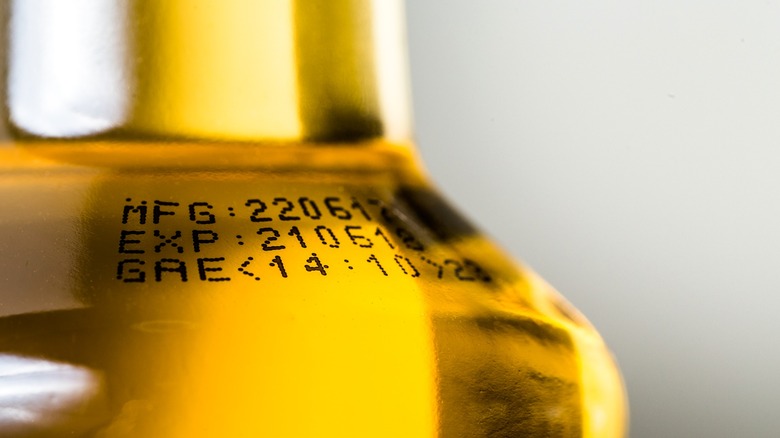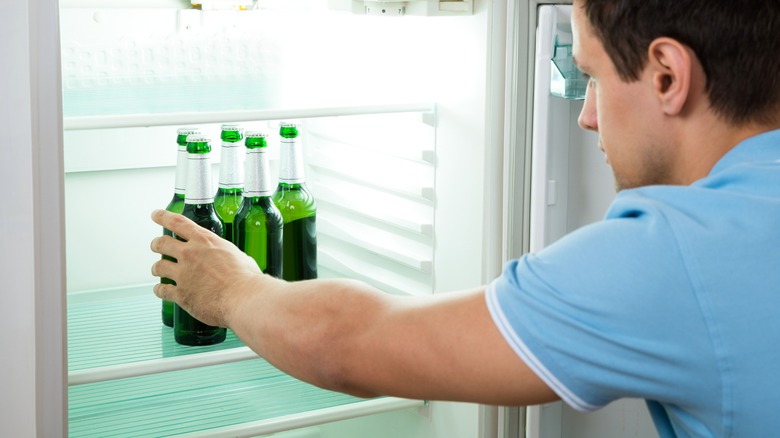When It Comes To This Type Of Beer, Always Follow The Best By Date
There is nothing more gratifying than taking a swig of an ice-cold beer to underscore the beauty of a lazy summer afternoon. It might make you a mosquito magnet, but sometimes that's the price you pay for a refreshing beverage in the heat. But if it goes off and develops a funky taste (both bottled and canned beer can go bad), it's not worth the cost of being nibbled on by those vampirous little annoyances.
According to the co-owner at The Liquor Bros, Nora Khoury-Potrus, you'd do well to keep an eye on the best-by date of some brews more than others if you want to avoid that foul flavor from ruining your sunny siesta. "Best-by dates are important to hop-forward beers –- IPAs, pale ales, and some higher hop lagers -– because their flavor is heavily dependent on delicate hop oils, which deteriorate rapidly," she said. "Beers with bold, fresh hop flavor (like IPAs) degrade more quickly than darker beers, malty beers, higher ABV beers, or beers with heavy adjuncts."
All the complex flavors that make hop-forward suds so satisfying will be lost when the brew is past its prime. "When hops oxidize, they lose their brightness and citrus notes; and with that, their intended flavor profile and freshness — it may even taste 'off'," Khoury-Potrus said. IPAs, in particular, can get especially nasty when they go bad. "IPAs tend to degrade faster than other beers because hops are quite volatile and susceptible to time, light, and heat." Keeping an eye on the best-by date will prevent you from guzzling an offensive-tasting beer. Of course, storing it correctly will extend its longevity.
Beer lasts longer when properly stored
All beer will eventually lose its luster. Depending on the type of brew and whether it's canned or bottled, the flavor generally starts to decline somewhere between four months and a year – but there is one thing that can lengthen its shelf life. "Freshness is maintained primarily by the way beer is stored."
"Heat, light, and oxygen are the three big enemies to beer freshness because they hasten the staling process and impart off-flavors, like skunky or cardboard tastes," Khoury-Potrus said. Mmm, cardboard, now doesn't that sound refreshing? The best way to extend the life of your cold ones, whether they're canned or bottled, is to make sure they are, in fact, cold ones. "Refrigeration is best, assuming you have space in the fridge, and it is especially handy for those higher hop beers as it inhibits chemical breakdown." When storing your suds in the fridge, bear in mind the 3-30-300 beer storage rule and make sure your refrigerator is as cold as can be without freezing your food.
Still, if you take a sip and realize too late that the brewski has gone off, it isn't the end of the world. "You can drink beer after its best-by date, but the quality probably won't be the same," Khoury-Potrus said. That repulsive taste that makes you pucker in disgust isn't a result of bacterial growth, so you don't have to worry about it making you sick. Still, once you get that bad beer sensation in your mouth, it tends to linger; dampening what could have been a pleasant affair.

